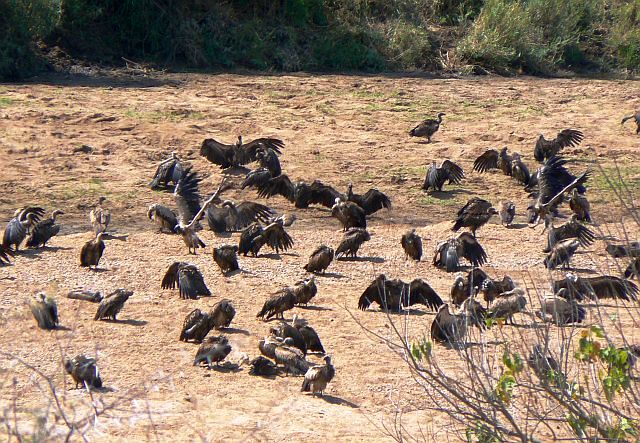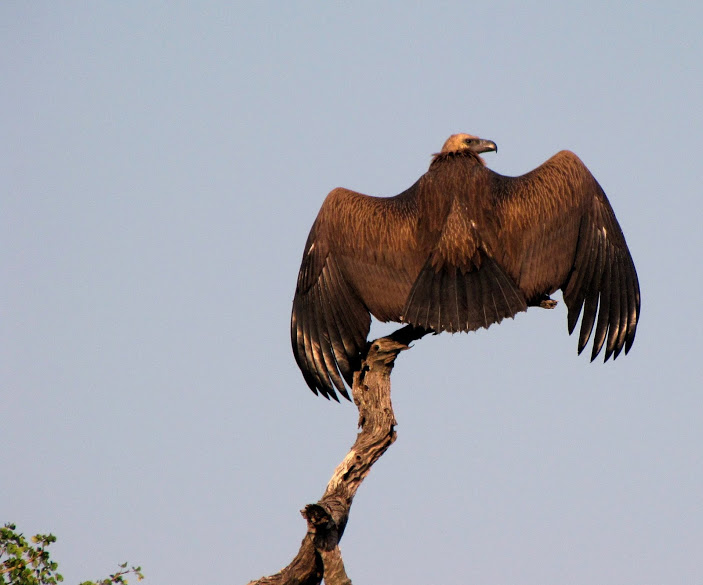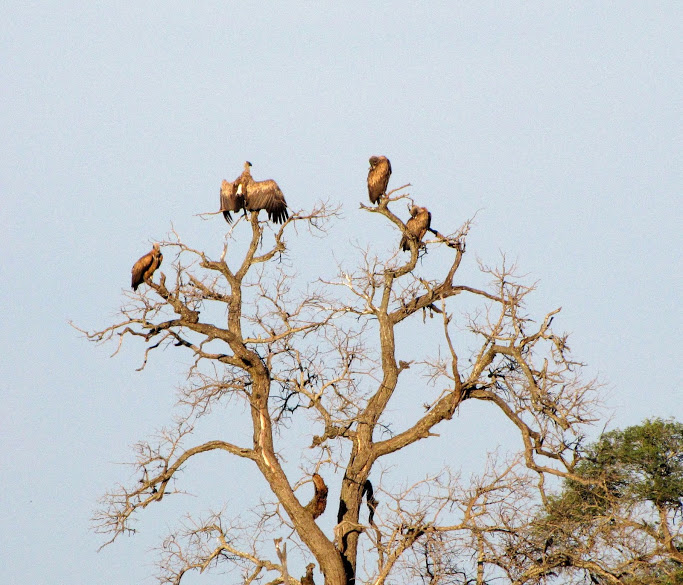The
White-backed Vulture Gyps africanus has declined severely in parts of its range and overall it is suspected to have undergone a very rapid decline owing to habitat loss and conversion to agro-pastoral systems, declines in wild ungulate populations, hunting for trade, persecution, collisions and poisoning. These declines are likely to continue into the future. For this reason it has been uplisted to
Endangered on the IUCN Red List.

Orpen

Nest in the Kruger National Park

Shingwedzi
It is the most widespread and common vulture in Africa, although it is now undergoing rapid declines. It occurs from Senegal, Gambia and Mali in the west, throughout the Sahel region to Ethiopia and Somalia in the east, through East Africa into Mozambique, Zimbabwe, Botswana, Namibia and South Africa in the south.
All eight
Gyps vulture species found globally are currently declining due to multiple threats including habitat loss, reduced food availability, direct persecution, and emerging threats such as climate change and fatal collisions with wind turbines and electricity cables. Their delayed maturity (African white-backed vultures generally breed after their fourth year) and relatively low reproductive rates make vulture populations especially vulnerable to high mortality rates. African Gyps vultures are sensitive to the toxic effects of diclofenac and other NSAIDs, after consuming carcasses of domestic livestock previously treated with the veterinary non-steroidal anti-inflammatory drug (NSAID), diclofenac.
In southern Africa, vultures are caught and consumed for perceived medicinal and psychological benefits. As a result of this and environmental pressures, it is predicted that the population of
G. africanus in Zululand could be become locally extinct. At least 37 endangered white-backed vultures killed in a single incident in 2013 in Hluhluwe-Imfolozi Game Reserve after feeding on an elephant carcass laced with poison. Most of the birds’ heads had been chopped off, increasing suspicion that they were poisoned by muti sellers.

There is an urgent need to implement vulture conservation measures beyond the boundaries of the protected area network because immature African white-backed vultures are capable of travelling across the entire region of southern Africa and spend a large proportion of their time outside protected areas. Their limited use of
protected areas and regular use of private farmland, particularly in South Africa, leaves them susceptible to anthropogenic threats such as poisoning by veterinary NSAIDs or predator control measures. Continuing mass poisonings of vultures in southern Africa therefore pose a serious threat to vulture populations from all countries in the region.
 Ruppell's Vulture
Ruppell's Vulture Ruppell's Vulture
Ruppell's Vulture White-rumped Vulture
White-rumped Vulture
 White-backed Vulture/Vautour africain – 4.10.2012
White-backed Vulture/Vautour africain – 4.10.2012






